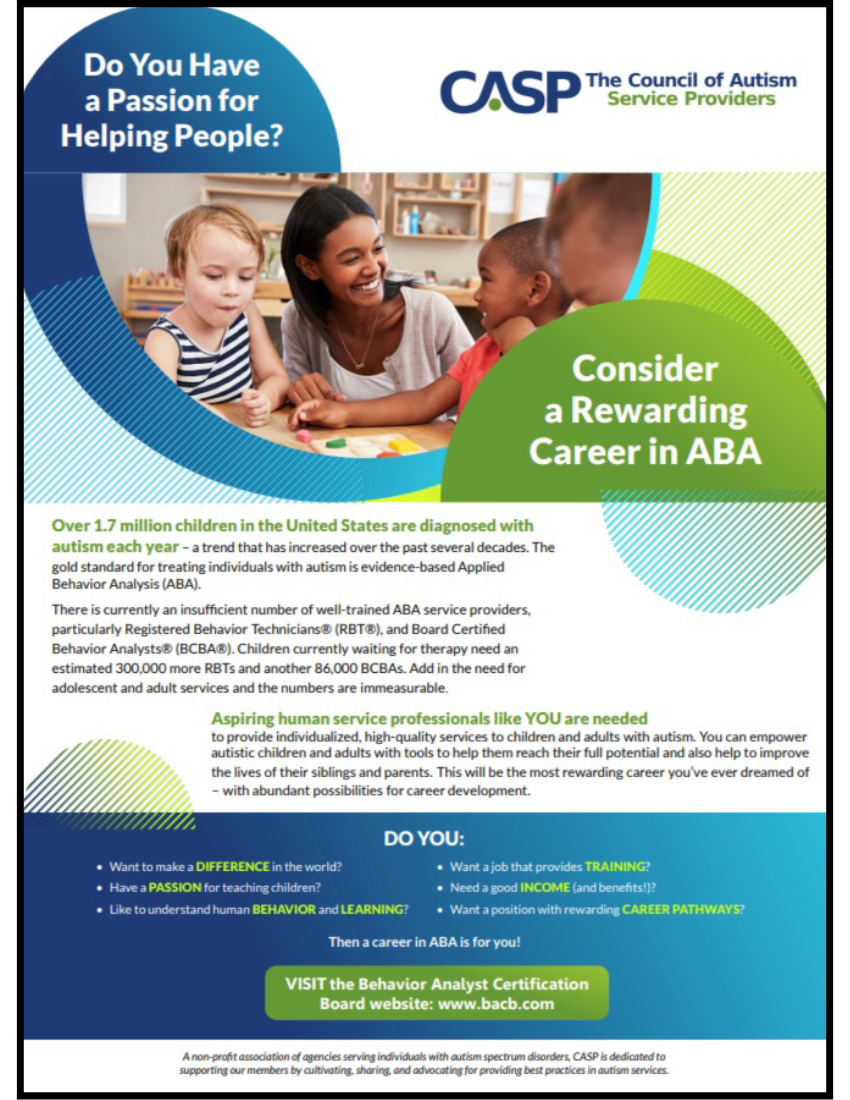Is a career as a Registered Behavior Technician (RBT) for you?
Over the past few decades, the number of children diagnosed with autism has steadily grown. At least 1 in 36 American children are estimated to have autism today.
Unfortunately, the supply of human service professionals hasn’t kept pace with the increasing need for autism support services. Applied Behavior Analysis (ABA) is a highly effective treatment for people with autism. But there is a severe shortage in Board Certified Behavior Analysts® (BCBA®) and Registered Behavior Technicians® (RBT®) to provide ABA services.
ABA-based therapies are the most researched and commonly used behavior interventions for autism. “BCBA” signifies a graduate-level certification in behavior analysis. Professionals certified at the BCBA level are independent practitioners who provide behavior analytic services and may supervise the work of RBTs and other professionals who implement behavior-analytic interventions.
Some reports suggest that 300,000 more RBTs are needed now to help children currently waiting for therapy. In CASP’s most recent survey of members, over half of respondents said hiring RBTs is their number-one priority. This is why CASP encourages high school graduates to consider a rewarding career as an RBT.
A Career Helping Others
As an RBT, you can change the life of a child, their siblings, and their parents. It’s a hands-on, rewarding job with a defined career path and numerous possibilities for professional development.
An RBT is an important member of the professional health services team. RBTs support and implement BCBAs’ patient care plans. They encourage developmentally appropriate behaviors, so clients can build and improve on their communication, social interaction, and problem-solving skills based on client and family goals developed with the intervention team.
RBT Requirements and Benefits
The typical RBT earns approximately $42,000 a year, according to research by Zip Recruiter. Qualifications to become an RBT include:
- 18 years old.
- High school diploma.
- Pass a background check.
- Complete a 40-hour training course
- Complete an initial competency assessment.
RBTs have the opportunity to continue their education in ABA and advance their career by becoming a Board Certified Assistant Behavior Analyst® (BCaBA®) and/or a BCBA.
Is Becoming an RBT A Career For You?
You’ll excel as an RBT if you:
- Want to make a difference in the world.
- Have a passion for teaching.
- Like to understand human behavior and learning.
- Want a job that provides training.
- Need a good income and benefits.
- Are pursuing a position with rewarding career pathways.
For more information about becoming an RBT and other career opportunities in applied behavior analysis, please visit the Behavior Analyst Certification Board website.



